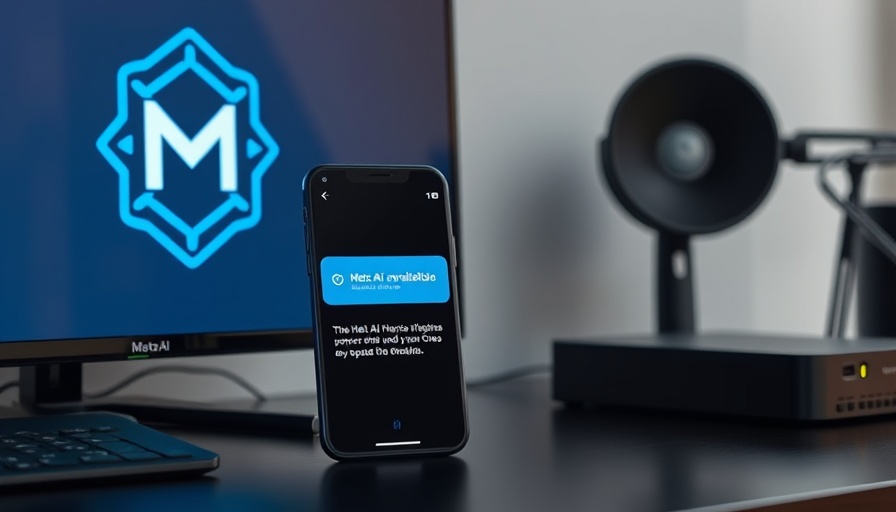
Meta's Shift Towards AI-Driven Risk Assessments: A Game Changer?
Meta, the parent company of Facebook, is positioning itself to revolutionize product risk evaluations by harnessing the power of AI. According to internal documents, the tech giant plans to automate up to 90% of its product risk assessments for updates to apps like Instagram and WhatsApp. Until now, these evaluations typically relied on human experts to ensure privacy and security measures were in place before launching any new features.
The Implications of AI in Product Development
Meta's new AI-driven system will require product teams to complete a questionnaire about their updates, which will grant them near-instant decisions on identified risks and compliance requirements. While this speed can lead to faster rollouts of updates, experts have voiced concerns regarding the potential for increased risk. A former executive mentioned that with AI taking the helm, the likelihood of overlooking adverse effects associated with new features could escalate.
Striking a Balance: Innovation Meets Accountability
In an official statement, Meta emphasized its commitment to privacy management, citing an investment of over $8 billion in its privacy programs. This statement reflects a strategic balance between advancing technology and adhering to regulatory obligations. As Meta's spokesperson clarified, while technology aims to streamline low-risk decisions, human oversight remains crucial for more complex issues.
Future Trends in AI-Driven Risk Management
The shift to AI-powered risk assessments aligns with broader emerging tech trends, indicating a changing landscape where AI tools are becoming more integral in operational processes. With AI expanding its role across various industries, this move by Meta can be considered both a response to regulatory pressures and a proactive measure to position itself as a leader in technological advancements. As AI evolves, future developments will likely emphasize robustness in privacy protocols, ensuring that data protection remains a priority.
The Bigger Picture: Reflecting On Technological Disruption
This transition to AI oversight raises questions about industry standards for transparency and accountability. As technology continues to evolve, the interplay between automation, data protection, and public trust will shape the next generation of AI applications. By automating critical processes, does Meta risk losing the human touch essential for navigating complex ethical dilemmas? Time will tell how this technology will transform not just product risk assessments, but the entire tech landscape itself.
As we observe Meta’s path forward, businesses and technology enthusiasts alike must consider the implications of integrating AI into essential operational functions. The balance between speed and safety will likely define the next wave of innovations within emerging tech industries.
 Add Row
Add Row  Add
Add 




 Add Row
Add Row  Add
Add 



Write A Comment